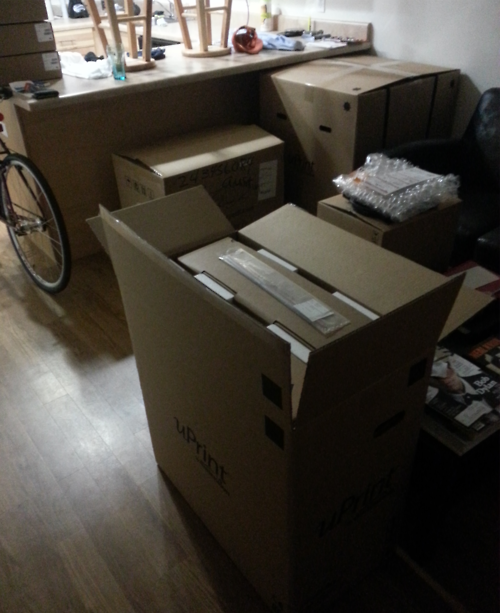An online project to make the world’s first printable gun has encountered yet another obstacle.
Defense Distributed, a Libertarian-leaning group, hopes to design, test, and develop the first ever plastic gun that can be built using a 3-D printer.
In August, Defense Distributed started a crowdsourcing campaign on Indiegogo. Their plan was to raise $20,000, enough money to purchase a low-end 3-D printer (valued at slightly under $10,000) and enough plastic ABSplus Polymer ($5 per cubic inch) to try out several designs.
“As long as we played it nice enough and stressed that what we were not going to sell any weapons, we’d figure Indiegogo would leave us alone,” Cody Wilson, a 24-year-old law school student at the University of Texas and a very active member of the group, told us over the telephone.
Defense Distributed raised $2,000—10 percent of their total goal—within the first 22 days. Unfortunately, Indiegogo got wind of what Wilson and his friends were doing and immediately yanked the campaign from its page.
“Once we started getting press, we got pulled down,” Wilson said.
The group tried to get a concrete explanation for the decision, but the crowdsourcing platform left them largely in the dark.
Indiegogo pulling the project from their site ended up being a blessing in disguise for Defense Distributed. The group moved the fundraising effort to their own site. Within a week, they raised $10,000. On Sept. 19, they surpassed their goal.
With the money in their coffers, they proceeded with the next step: get ahold of a printing machine. Wilson spoke with a local Stratasys representative and was able to secure a 90-day lease of the company’s uPrint SE model—an upgrade over the previous device—and an unlimited supply of the printable plastic.
Things appeared to be going smoothly until Defense Distributed came across another hurdle: Stratasys wanted their printer back.
On Sept. 26, the company’s legal team contacted Wilson to renege on the agreement, mere days after receiving the printer. In fact, the device hadn’t even been taken out of the box. From a letter Stratasys sent to the law school student:
“It is the policy of Stratasys not to knowingly allow its printers to be used for illegal purposes. Therefore, please be advised that your lease of the Stratasys uPrint SE is cancelled at this time and Stratasys is making arrangements to pick up the printer.”
The following day, two men in an Enterprise van showed up to Wilson’s home and picked up the machine.

“They are using the law as an excuse to take the printer away,” the 24-year-old said when we spoke with him yesterday, “They don’t want to be associated with the project.
“They don’t care if it’s legal. They’d definitely take my money if I were to buy one.”
The Daily Dot reached out to Stratasys but were unable to get a comment despite leaving several voicemail messages.
On Monday morning, Wilson paid a visit to the Austin, Texas, field office of the Bureau of Alcohol, Tobacco, Firearms, and Explosives (ATF) to further confirm whether what Defense Distributed is hoping to accomplish is legal.
According to the Wilson, the ATF informed him that they were aware of his group and their goals, and proceeded to question him further. After assessing that he wasn’t a threat, the ATF answered his questions regarding gun classification, telling him that there was a lot of ambiguity given the novelty of the project.
“They pretty much gave me the answers I was looking for in that the technology is basically beginning to get ahead of the regulations like it is everywhere else online,” Wilson stated.
“No one can really help us because there’s no precedent.”
We reached out to the ATF Austin field office to verify Wilson’s story but the agent who spoke with us on the phone could not provide any confirmation. When told about what Defense Distributed was trying to do, the agent immediately said that it was illegal, and cited a segment of United States Code 19, Section 922, which bans any firearm that cannot be detected by an X-ray machine commonly used at airports.
Despite the setbacks, Wilson and his crew aren’t discouraged.
“Quite the contrary,” he said. “I’m only emboldened by this kind of action.”
The group still plans to move forward with the Wiki Weapon Project. They are currently in talks with two private parties who could potentially provide them with additional funding. Defense Distributed is also planning on incorporating and will work toward getting a Federal Firearms License to protect themselves from the aforementioned legal gray area.
“At the end of of the day, this is something worth pursuing,” Wilson reflects, “I’m curious about it.”
“Should my curiosity be punished or curbed?”
Photos via Cody Wilson/Defense Distributed
